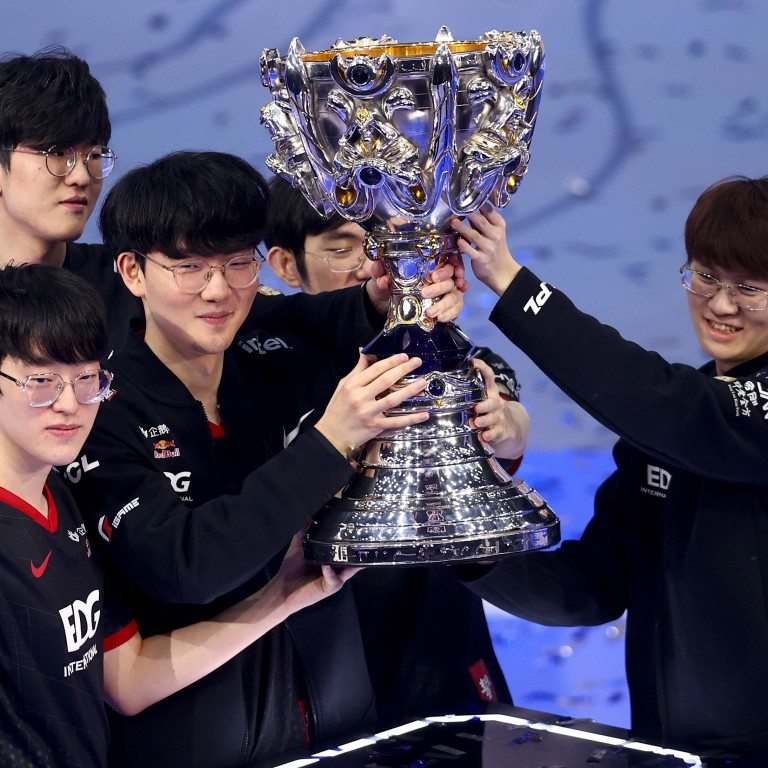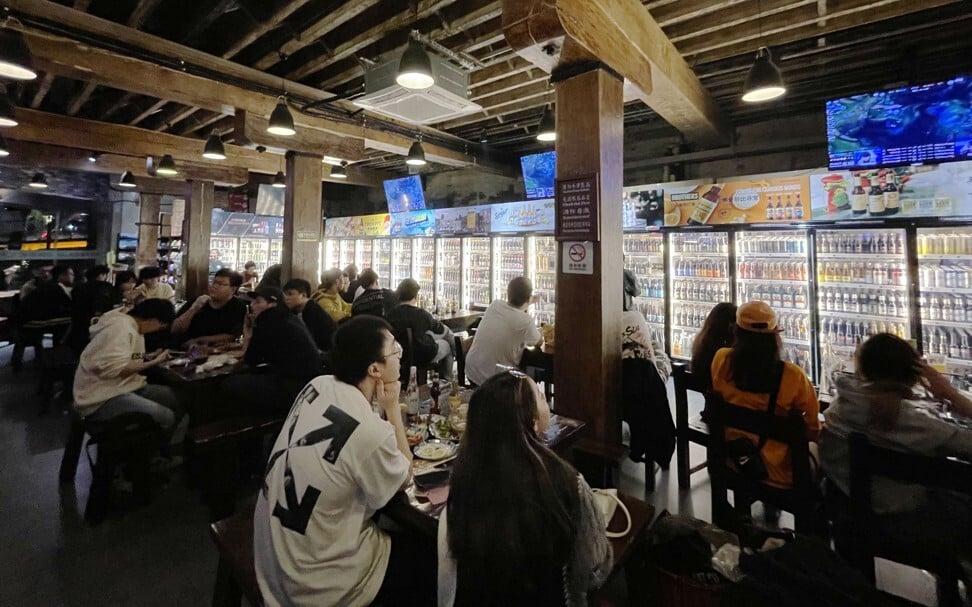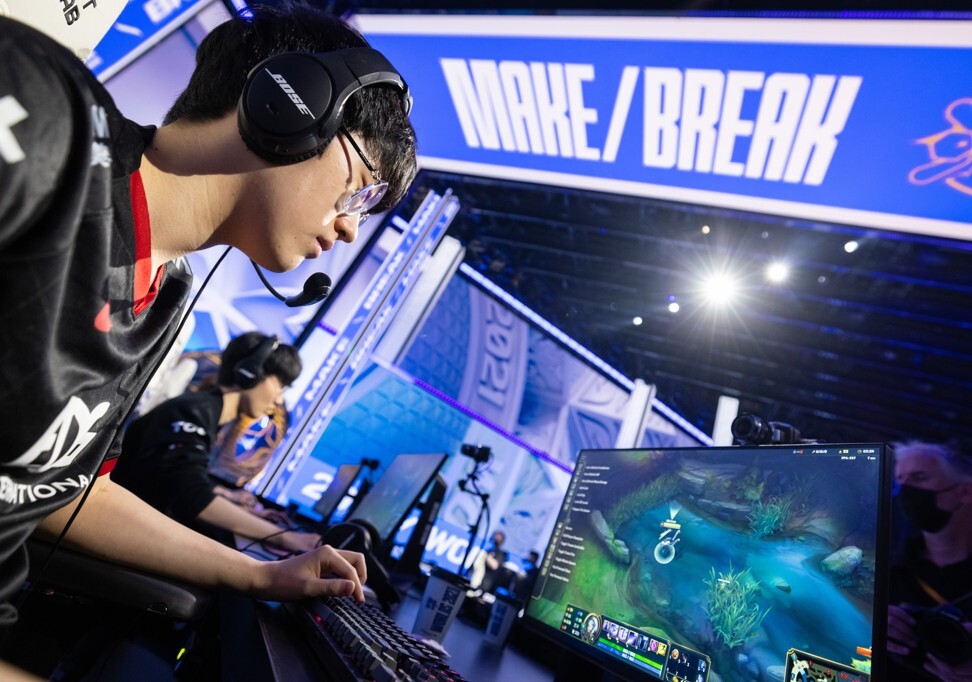
Chinese esports fans celebrate country’s latest world championship amid Beijing’s tightened controls on video gaming
- Edward Gaming has become only the third Chinese team to win the esports industry’s coveted League of Legends World Championship finals
- The Shanghai-based team also claimed the tournament’s pool prize money totalling US$2.225 million
This year’s five-game world championship finals kicked off at 8pm local time and finished around 1am on Sunday. All the EDG fans who clapped, yelled and cheered throughout the night were rewarded with the team’s winning 3-2 score over its rival.
EDG hoisted the coveted winner’s trophy the Summoner’s Cup and claimed the pool prize money totalling US$2.225 million, as the group bested 21 other teams which took part in this year’s championship series, which started on October 5. EDG’s mid lane player, Lee “Scout” Ye-chan, received the Most Valuable Player award for the finals.

“No one expected them to win,” said esports fan Jasmine Lu, who watched the championship finals at her home in Ningbo, a city in eastern Zhejiang province. “Nearly every prediction said they would lose the game. If I was still in university, I would’ve definitely yelled with others [to express happiness for EDG’s victory]. It’s like you proved all the doubters wrong.”
Established in September 2013, EDG was founded by esports tycoon Zhu Yihang. He is eldest son of Hopson Development founder Zhu Mengyi, who runs one of the five largest privately held property companies in southern Guangdong province.
While EDG’s world championship is welcome news to the country’s esports market, it comes at a time when China’s three-hour weekly video gaming restriction for players aged under 18 could potentially kill the country’s ambition to become a global powerhouse in this field.

In esports, 18 is already considered a mature age for a player because most participants consider retirement early in their 20s. It is uncertain whether the Chinese government will make special arrangements for certified under-18 esports players to get sufficient training time. In a Chinese documentary called Little Giants, 21-year-old Zeng Guohao gave up his table tennis career to pursue a career in esports. His daily training typically extended past midnight.
The stakes are high for China in esports, a market with projected revenue surpassing 165.1 billion yuan (US$25.8 billion) this year. That includes income generated from games, tournaments and merchandising.
China’s love-hate relationship with video games puts sector in stormy waters
China’s latest Summoner’s Cup win is expected to bolster the domestic esports market’s growth.
“Esports and video game viewership and participation in China is next level when compared to most [countries in] the West,” said Chris Smith, founder of market consultancy BIG Esports. “It’s obvious given the strong viewership figures year on year for the League of Legends [world championship] … that the fandom in the country is unreal and rivals that of any traditional sport in the West.”


